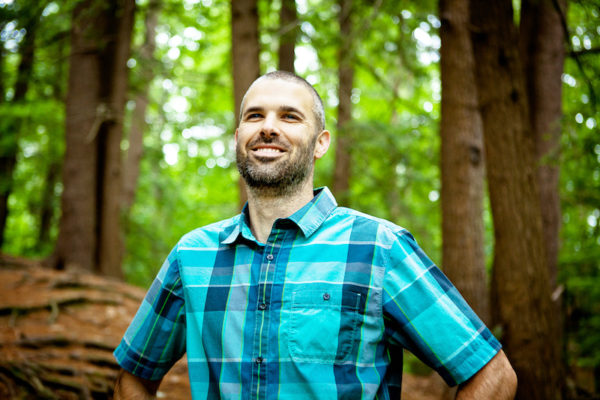By Jen Boggs
This year is winding down and a sparkly new one is within sight. You know what that means: T
I talked to Jacob Coldwell, the founder of Mountain Pass Life Coaching about new year resolutions and why they don’t seem to work for most people.
Focusing on the end vs. first steps
Jacob believes that one of the big reasons resolutions don’t work is that people are too focused on the results they’re hoping to accomplish. While it’s important to identify a goal to work toward, if you get stuck only thinking about that end result then, well, you get stuck. Then, Jacob says, your disappointment can quickly lead you to
Here’s an example: Say you’re new to running and your resolution is to run your first marathon by the end of the year. Obviously, you’re not going to run it on January 2nd because that would be unreasonable (not to mention detrimental to your body). Before you can successfully run a marathon, you need to develop running skills and habits.
So what is the first step you need to take toward that goal? Maybe the first step is to make a running program. Never heard of a running program? Do some research online. Ask a personal trainer or friend who runs marathons how they would train. You may find that you have an easier time running with other people, so your next step could be to join a local running group. No one said you have to do this alone! One step at a time – and the patience to take them one at a time – gets you closer to running that marathon.
According to Jacob, there are four important concepts in this example:
- Don’t be so focused on the end result that you neglect to take the first small step to get there. The first step can be ridiculously simple, and you’ll find that subsequent steps will flow out of that first one.
- It’s good (and manageable) to have multiple milestones that lead up to the end goal. Break it down into concrete actions so you can see your path toward the goal – and enjoy the small wins along the way!
- Be open to adaptation. For instance, if running by yourself isn’t working for you, then maybe joining a running group will. Each milestone doesn’t have to be written in stone, especially as you better learn how you make progress.
- Establish a support system around you as part of your plan. Other people can help you with specific steps, hold you accountable to your plan, and celebrate the wins with you!
Stay open
As you’re working on your resolution throughout the year, stay open to what you’re learning about yourself and be willing to adapt your plan – and maybe even your goal. Even when we have a clear intention, we don’t really know what it’s going to look like in the end. Life can change so much from week to week, so adaptations keep us from getting stuck (because getting stuck can lead to stopping). If you get stuck, try a new tack, or ask a friend what they think.
Again, if you focus on the steps more than the results, you might find that the things you’re doing produce a clarity far more significant than the original resolution. Jacob goes back to the running example:
“If at the end of the year you don’t run a marathon, but you’re signed up (and ready) for one the following year, then that’s a success! Or, if you find that you’re more physically and psychologically fit because you’re regularly running, then maybe that was truly your goal all along. That kind of clarity and self-knowledge is invaluable.”
There’s one more suggestion Jacob has for people who are determined to make a new year’s resolution: What you’re looking for may be right in front of you.
“I think sometimes when people approach resolutions, they’re trying to acquire something new or find something outside of themselves. But they might miss out on the strengths and resources that they already have, even if it doesn’t look like the picture they have in mind.”
So if you’re still game for making a resolution this year, go for it! Go step by step, stay flexible and ready to pivot, and above all, be kind to yourself.



Leave A Comment